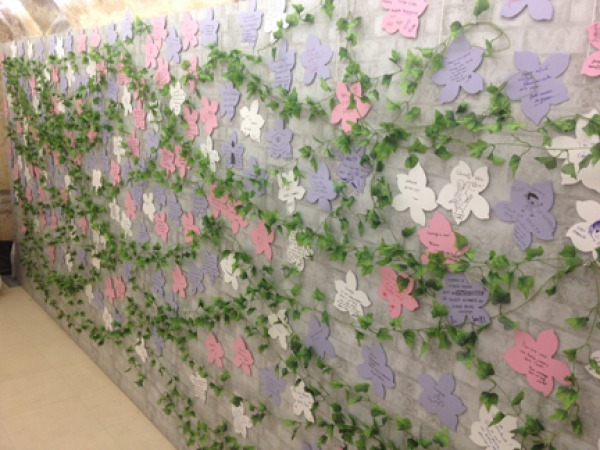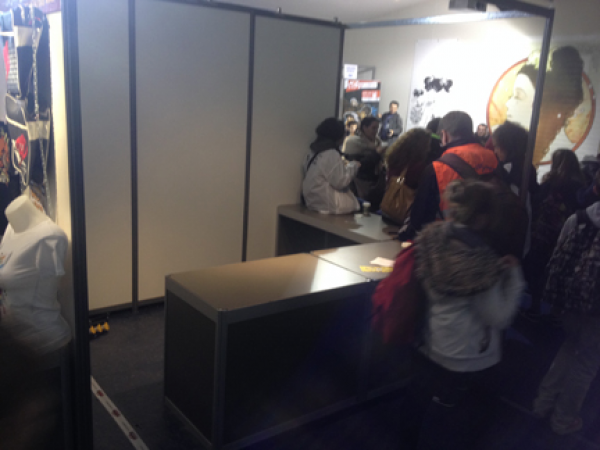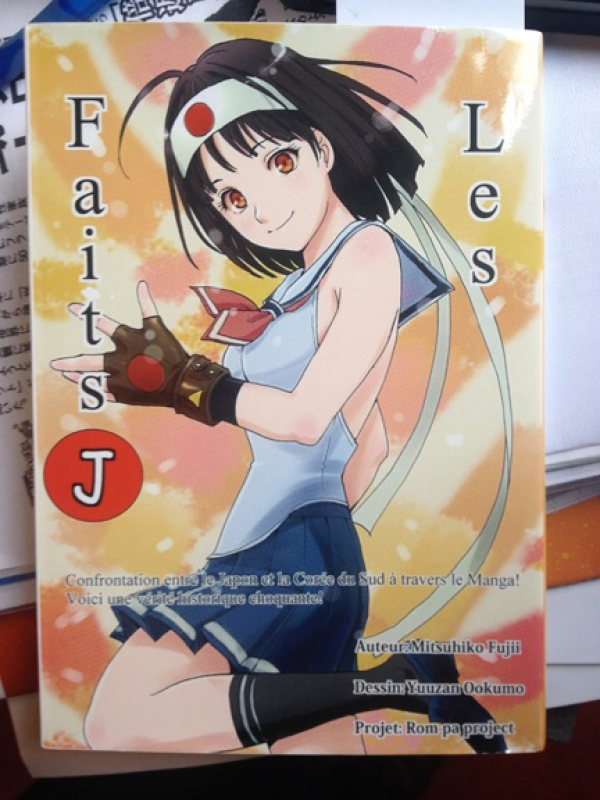
February 1, 2014
 Euro-Comics Special: Paul Karasik In Angouleme 04
Euro-Comics Special: Paul Karasik In Angouleme 04

 By Paul Karasik
Sexual Politics
By Paul Karasik
Sexual Politics
In a corner of the otherwise bustling Little Asia Pavilion at the Angouleme Comics Festival sits an empty table, prime commercial real estate sitting empty.
Across town at the Theater is a show presented by the Korean government. Visitors crowd the entrance.
What connects these two locations at the otherwise jubilant festival? Sexual slavery.
I may have some of the details wrong on this situation, lots of language barriers here, but after speaking to several people about it, I think that I have a pretty good idea of what has occurred and why that table in Little Asia is empty.
There is no disputing the fact that young Korean women were abducted by Japanese and brought to Japan to be employed as sexual slaves, or "Comfort Women." Estimates vary as to how many women were abused in this fashion.
The Korean exhibit at the Angouleme Theater opens with a fairly explicit animation of the story of one girl, who represents untold numbers of girls, and it is a terrible narrative of exportation and exploitation. It is chilling.

(NOTE: Those are the girl's knees in the foreground)
As you move inside to the exhibition, you see work from a dozen or so Korean cartoonists on this subject. Some are heartbreakingly beautiful, some purely symbolic, some heavy-handed and trite. All are designed to reinforce the horror.

In the rear of the exhibit is a wall where visitors are invited to write notes of sympathy and indignation on pastel paper flowers to tack on the wall.
The entire effect is didactic and discomforting. The Korean government shelled out a lot of euros to construct this testament.
Meanwhile, an empty table sits seven minutes across town.

This table was going to display Japanese manga depicting versions of the story from artists from that country. The Festival shut down the booth. The table is empty.
When I asked the organizers of the Korean booth why they believe the Festival closed down the Japanese booth they said that they understood that the material in the Japanese display was created by a right wing extremist group that denies the history.
The Koreans maintained that their booth is historical information and the Japanese booth had a political agenda. They explained, patiently, that it was as if the Americans had a booth describing Pearl Harbor and the Japanese had a booth denying that the bombing ever happened.
Over the past few days the controversy has escalated. A press release was issued to the Angouleme press corps from the Japanese Ministry of Foreign Affairs that stated: "Throughout history, women’' dignity and basic human rights have often been infringed upon during the many wars and conflicts of the past. The Government of Japan places paramount importance on and is committed to doing its utmost to ensure that the 21st century is free from further violations of women’s dignity and basic human rights."
The press release goes to great lengths to explain its government's official position. It is not a denial and outlines the official reparations that have been made.

I briefly held the Japanese manga and it appeared fairly tame, but I do not read Japanese. All I could discern from a quick skim were graphs and charts amid some kind of narrative. But I did get a chance to speak to the author of the comic and his associates who are as incensed at the behavior of the Festival as they are of the Korean's version of history.
The Japanese whom I spoke with believe that the festival organizers misunderstood the wording on a banner they hung, interpreting it as a claim that there were no comfort women.
They do not dispute the existence of Comfort Girls, but they claim -- and this appears to be the linchpin -- that these girls were recruited and well-paid prostitutes, not abducted. In their eyes, they are not trying to rewrite history but trying to get their version of history, based on their research, out in the open.
Each side accuses the other of being political. Both sides believe that politics have no place at a comics festival.
Politics aside, these are ancient open wounds. The issue is still alive.
... and women are still being used as commodities in the 21st century.
I have had a swell time during this Festival, made new friends, checked in with old pals. I have seen terrific exhibitions, eaten great food, and even gotten a lot of exercise in the process of walking around town. But for me, Angouleme 2014 has been heavy.
As beautiful as they are, the exhibitions of two essential European cartoonists, Jacques Tardi and Gus Bofa, are reminders to never forget the trench warfare of World War I. The Korean-Japanese dispute is a reminder to never forget the hell of World War II. Both underline the inhumanity capacity of humans.
See you in the funny pages.
*****
Paul Karasik is a cartoonist, author and educator best known for his work on
the graphic novel version of City Of Glass and for
bringing to a wider audience the work of Golden Age cartoonist Fletcher Hanks.
*****
*****
posted 9:00 pm PST |
Permalink
Daily Blog Archives
November 2019
October 2019
September 2019
August 2019
July 2019
Full Archives


